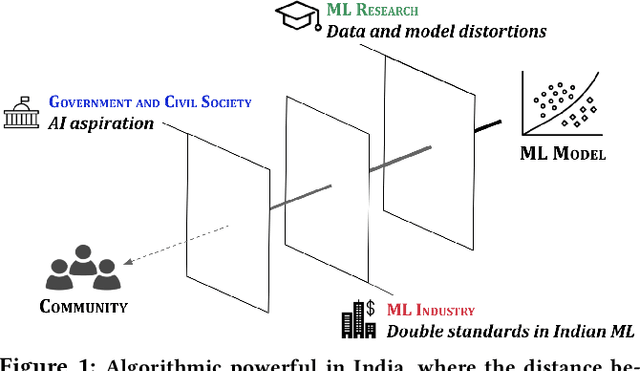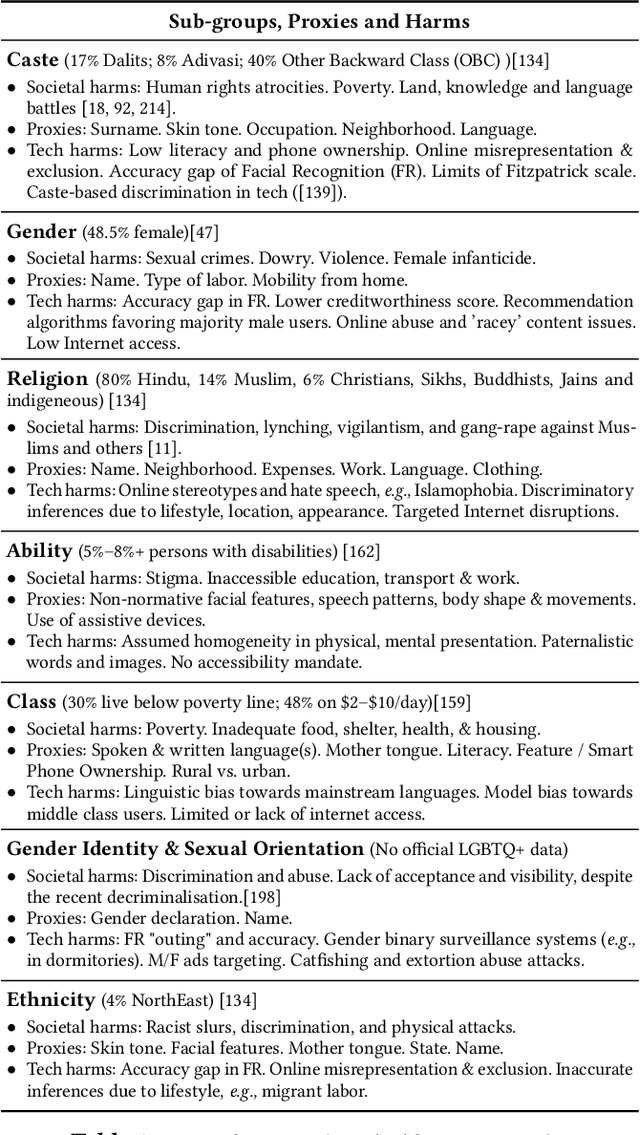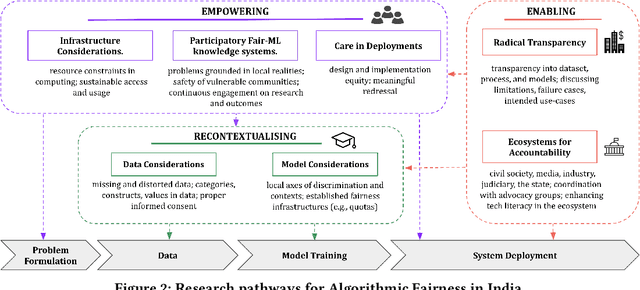Erin Arnesen
Re-imagining Algorithmic Fairness in India and Beyond
Jan 27, 2021


Abstract:Conventional algorithmic fairness is West-centric, as seen in its sub-groups, values, and methods. In this paper, we de-center algorithmic fairness and analyse AI power in India. Based on 36 qualitative interviews and a discourse analysis of algorithmic deployments in India, we find that several assumptions of algorithmic fairness are challenged. We find that in India, data is not always reliable due to socio-economic factors, ML makers appear to follow double standards, and AI evokes unquestioning aspiration. We contend that localising model fairness alone can be window dressing in India, where the distance between models and oppressed communities is large. Instead, we re-imagine algorithmic fairness in India and provide a roadmap to re-contextualise data and models, empower oppressed communities, and enable Fair-ML ecosystems.
Non-portability of Algorithmic Fairness in India
Dec 08, 2020

Abstract:Conventional algorithmic fairness is Western in its sub-groups, values, and optimizations. In this paper, we ask how portable the assumptions of this largely Western take on algorithmic fairness are to a different geo-cultural context such as India. Based on 36 expert interviews with Indian scholars, and an analysis of emerging algorithmic deployments in India, we identify three clusters of challenges that engulf the large distance between machine learning models and oppressed communities in India. We argue that a mere translation of technical fairness work to Indian subgroups may serve only as a window dressing, and instead, call for a collective re-imagining of Fair-ML, by re-contextualising data and models, empowering oppressed communities, and more importantly, enabling ecosystems.
 Add to Chrome
Add to Chrome Add to Firefox
Add to Firefox Add to Edge
Add to Edge